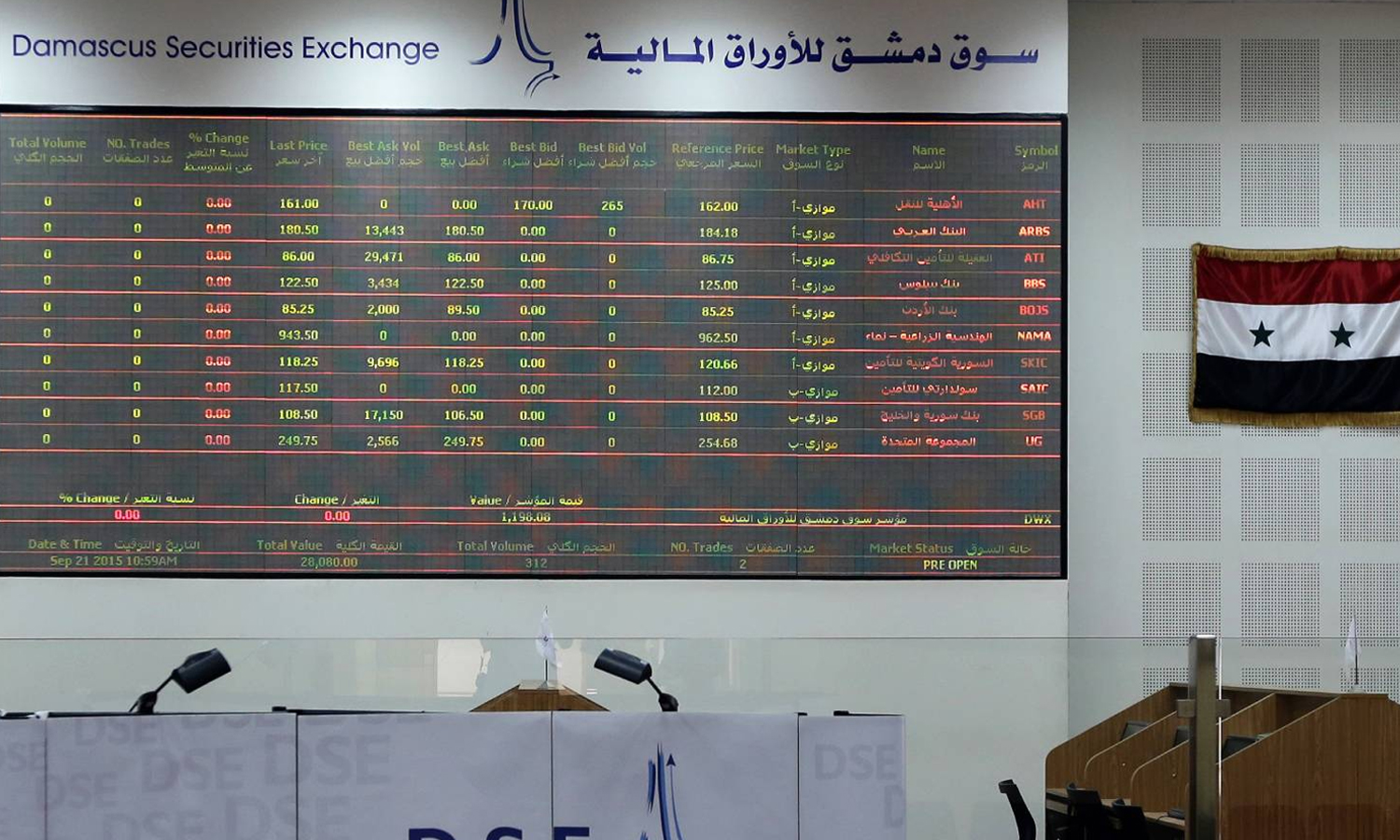



Enab Baladi – Jana al-Issa
The Syrian regime government discussed on 31 May the draft legislation to encourage family businesses to transform into joint-stock companies due to their “importance and role in developing the economy, and being an investment opportunity.”
Talks about the project are not new, as the government has studied provisions for laws that may encourage the transformation on several occasions over the past years.
At the end of last January, the State-run al-Thawra newspaper quoted official sources about the formation of a committee chaired by the Assistant Minister of Finance to complete the draft amendment to the law on the conversion of family businesses to joint-stock companies.
The Committee includes, according to sources, representatives of the General Authority for Taxes and Duties, the Syrian Commission on Financial Markets and Securities (SCFMS), the Damascus Securities Exchange (DSE), and the Syrian Association of Financial and Accounting Professions.
Firas Shaabo, expert and professor in Financial and Banking Sciences, told Enab Baladi that the regime government’s tendency to transform family businesses into joint-stock companies began in 2007, especially with the establishment of the DSE in mid-2008.
Dr. Shaabo justified the government’s approach at the time by trying to revitalize the economic situation, as the conversion of companies into a joint-stock creates more investment opportunities and improves financial capabilities through the financing that these companies will enter.
The presence of the Damascus Securities Exchange (DSE) contributed to accelerating the pace of conversion, while Shaabo considered that today’s talk of the plan, and the government’s tendency towards it, is very unrealistic. Its application requires legal advantages and conditions, a sound economic environment and tax advantages, as well as the fair value estimate of these companies’ assets, noting that the value of the Syrian pound contributes to the instability of these companies as well.
In early October 2007, the head of the Syrian regime, Bashar al-Assad, issued Decree “61” on the conversion of the company’s type and the reassessment of its fixed assets.
However, the decree was suspended in 2010 without even a single company benefiting from it, and the regime’s government has since promised to pass the companies transfer law without anything being issued by it so far.
Family businesses, which are owned and run by a family that has gained its fame from the company itself or vice versa, belong in historical roots to one person who is the founder.
Family companies are widely spread in all countries around the world, and their legal classification is limited to several names, as they are limited liability companies, partnership companies, simple partnerships, or limited partnerships with shares, and private closed joint-stock companies can be added to them, which the laws of some countries approved the trading of their shares on stock exchanges.
The capital of the joint-stock company is divided into equity shares, and shareholders’ liability for debts of the company is limited to their participation in the share capital.
It is considered to be one of the most important and widespread legal forms of money companies and is of a commercial nature whatever its subject matter.
Before talking about the economic environment, Dr. Shaabo believes that one of the most prominent challenges facing the imposition of converting family businesses into a shareholding is the lack of a legislative and legal environment to regulate the work of these companies.
Shaabo considered that the current legislative environment is not suitable for implementing this plan at various levels, such as financial assessment, transfer methods, tax laws, or the organizational structure of the mechanism of work of these companies.
In the case of a good economy and a healthy environment, the transformation of family businesses into public joint-stock companies (listed on the stock market), private joint-stock companies, or limited liability joint-stock companies (confined to a group of people) is a very good thing from a technical and financial point of view, according to Shaabo.
But it will not bring any benefit or contribute to improving the economic situation in the generally dilapidated Syrian economy, which cannot secure the minimum obligations towards individuals and companies.
Shaabo believes that one of the most prominent advantages of converting family businesses into joint-stock companies is to provide investment opportunities for companies and individuals so that there is a type of investment in the shares listed in these companies.
However, the Damascus Securities Exchange is basically inactive due to the lack of confidence in the Syrian economy, which also results in distrust of Syrian joint-stock companies, according to Shaabo, explaining that the Damascus Securities Exchange today is only a group of banks and insurance companies, in addition to a very small number of industrial and telecom companies.
According to a statement by the Executive Director of the Damascus Securities Exchange, Abdulrazzaq Qassem, in February 2019, family businesses constitute 80 percent of all companies in Syria.
At the time, Qassem considered that what prevented family businesses from converting to a joint-stock company or to any other legal form was “the lack of transparency and sufficient corporate culture for them” and the lack of tax justice and costs associated with social insurance between family businesses and public joint-stock companies.
There are only 53 joint-stock companies in Syria, some of which are out of business, in addition to only 27 public joint-stock companies listed on the stock exchange, while other companies did not meet the conditions for listing on the stock exchange, according to a report by al-Iqtisadi website, published in early 2021.
According to data released by the Damascus Securities Exchange, the share of foreigners in the capital of public joint-stock companies is 0.12 percent in the services sector, 1 percent in the agricultural sector, 27 percent in the insurance sector, 43 percent in the telecommunications, 48 percent in the banking sector, and 65 percent in the industrial sector.
if you think the article contain wrong information or you have additional details Send Correction